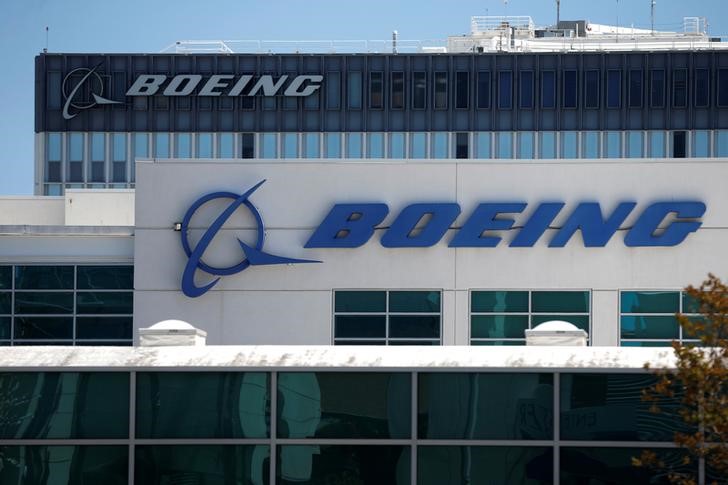By Rachit Vats
(Reuters) - Rising demand for jet sales pushed Boeing (NYSE:BA) Co's stock to the top of the Dow Jones Industrial Average in 2017, and record cash flow to fuel projects, sustain dividends and buy back shares could give it another bumper year, analysts said.
After a resurgence in jet sales driven by a solid global economy and with most of its production issues behind it, Boeing has found itself flush with record free cash flow - a profitability measure widely watched by investors for industrial stocks.
"We believe Boeing shares are still moderately undervalued, particularly if the company can sustain free cash flow margins in the 13-15 percent range," Fort Pitt Capital Group founder Charles Smith told Reuters.
"Given our expectations for moderation in capex over the next couple years, along with continued efficiencies on the 787 Dreamliner, we think this can happen," said Smith, whose funds held a 0.04 percent stake in Boeing as of Sept. 30, according to Reuters data.
Smith said Boeing's third quarter free cash flow margin was 12.45 percent.
The company has increased its free cash flow from $1.83 billion in 2010 to an estimated $10.5 billion in 2017. That figure would be an increase of 34 percent from 2016.
The surge in cash flow has energized the company's shares, pushing up the stock price by more than 90 percent in 2017. Still, the stock trades at a slight discount to its aerospace peers.
Morgan Stanley (NYSE:MS) analyst Rajeev Lalwani said if management executes on another year of growth, tax reform materializes and free cash flow multiples catch up with peers, one can expect "another +50 percent year."
Chief Executive Officer Dennis Muilenburg recently confirmed that the company expects to grow operating cash flow annually through the end of the decade, adding that it remains committed to returning about 100 percent of free cash flow to investors.
Free cash flow points to a company's ability to expand production, develop new products, make acquisitions, pay dividends and reduce debt.
Boeing last month raised its quarterly dividend by 20 percent and replaced its existing $14 billion share buyback plan with a new $18 billion authorization.
Since the end of 2012, the world's biggest airplane producer has pumped back nearly $40 billion to its investors through dividend and share repurchases while still investing substantially in products, services and people.
Fort Pitt's Smith says Boeing's management is doing well allocating capital between new projects, acquisitions and buybacks and predicts a return on shareholder equity of 17-18 percent that gives shares a "fair value" estimate for 2018 of $300 to $360.
Boeing's shares were trading up 1 percent at $313.75 on Tuesday.
The company, however, has to overcome near-term challenges like its troubled aerial tanker refueling program and longer term concerns such as macroeconomic issues and possible supply chain problems, Morgan Stanley's Lalwani said.
But for now the stock remains popular among investors, with 13 out of 25 analysts rating it a "buy" or "strong buy".
"It's a bull market and Boeing is a classic kind of late stage bull market stock - mega cap, high quality, global orientation," said Kenneth Fisher, whose asset management firm owned about $70 million of Boeing stock as of Oct. 17.
Boeing said in September it will raise production of 787 Dreamliner jets to 14 a month in 2019 from 12 currently, indicating reviving faith in wide-body demand.

On Tuesday, Boeing said it delivered 763 jetliners in 2017, likely retaining the title of the world's biggest plane maker compared with European rival Airbus SE.